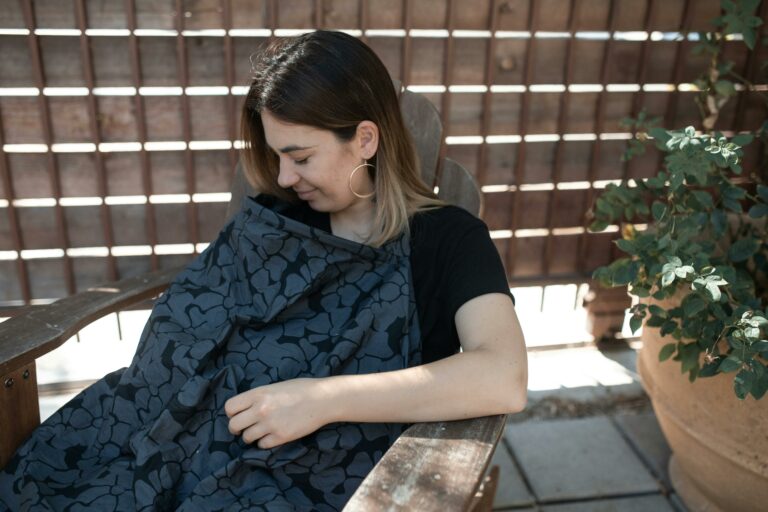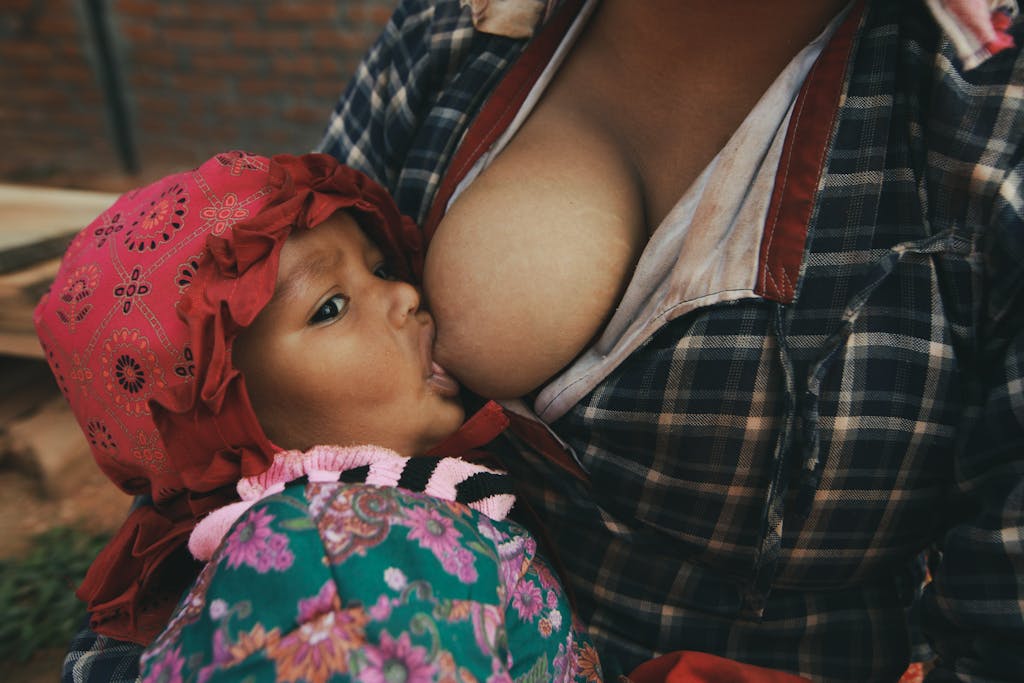Congratulations! It’s great that you’re thinking about breastfeeding.
It’s not only the biologically normal way to feed your baby, but a big help as you learn to mother your baby. There is almost nothing you can do that will affect your child’s whole life, emotionally and physically, as much as breastfeeding will.
Here are a few of the top reasons that breastfeeding is important for both you and your baby:
• Breastfeeding for even a few days reduces postpartum problems and gives your baby’s kidneys, intestines, and liver a much healthier start. Your early milk is chock-full of protection that your baby will rely on for months to come. It has specially-tailored immunities that no formula can offer.
• If you breastfeed for more than a few months, you’ll be less likely than formula feeding mothers to develop certain cancers, diabetes, osteoporosis, and urinary tract infections.
• A diet of your milk alone for about the first six months of life helps ensure that your baby has a normal immune system, and protects him against many diseases and illnesses that are more likely with formula-feeding. That means a happier baby and fewer sick days away from your job.
• Breastfed babies use nursing for comfort and security as much as for food, so they tend to cry less.
• The longer you nurse, the better for your baby’s IQ and health, including long-term health risks such as cancers, heart disease, diabetes, and obesity.
• If you breastfeed exclusively, your fertility and menstrual periods usually don’t return for six months or more.
• You may be more likely to lose weight gradually without dieting while breastfeeding.
• Formula-feeding takes more time, effort, and money compared to breastfeeding.

• Breastfed babies tend to have silky, soft skin. Formula-fed babies are more likely to have eczema. They have more asthma and allergies, too.
• Breastfed babies’ stools smell much better.
• Lots of mothers wish they had breastfed. Very few breastfeeding mothers wish they had formula-fed. You can learn much more about every aspect of breastfeeding in La Leche League International’s book, The Womanly Art of Breastfeeding, 8th edition. It’s a great resource and a fun read.
How Often Will My Baby Nurse?
Most newborns are ready to nurse in the first hour after birth. Nursing tends to go better if they get a chance to latch onto at least one breast during this time. After the first nursing, you’ll both probably feel sleepy for a while, so the next feeding may not happen for four to six hours. This is fine for full-term newborns. Some will nurse more often, and that’s fine, too. After the first twenty-four hours, a full-term, healthy newborn may need to nurse as often as several times an hour or as infrequently as every three hours, counting from the start of the feeding until the start of the next one. Expect to nurse your baby at least eight to twelve times every 24 hours.
Frequent feedings are important for the following reasons:
• They provide the nutrition your baby needs. Your milk was designed to be digested quickly and easily. These frequent, small amounts of colostrum, your first milk, are perfect for your baby’s tiny stomach.
• Frequent feedings ensure that your breasts are stimulated enough to establish a full milk supply. The more milk that is removed from your breasts, the more milk your body will produce.
• The security of your arms and breasts help your baby as he learns to live outside your body.
And don’t worry, feedings won’t always be this frequent. Your baby is not yet very efficient at nursing, and he’s growing rapidly. He’ll eat less often as he grows.
Many babies “cluster nurse,” which means they nurse often for a few hours and then sleep for several hours. Some babies also sleep for one long four to five hour stretch each day (ideally at night!). The number of feedings in a 24-hour period is more important than the spacing of feedings. You can’t nurse your baby “too often,” but you can nurse him too little. The best advice is to watch your baby, not your clock.
Signs of Hunger
• bringing hands to mouth
• turning his head to the side, with wide, searching mouth
• chewing or sucking on hands or fingers
• bobbing head and mouth against your shoulder
• “Uh, uh, uh” sounds
Don’t wait for your baby to cry to let you know he is hungry. Crying is a very late hunger sign, and can make it harder for your baby to nurse effectively.
A sleepy baby may need to be wakened every two to three hours to feed at first, especially if he has jaundice or hasn’t been getting enough milk. Talk with your health care provider if your baby is difficult to wake for feedings.
Some babies seem to nurse all the time because they aren’t getting milk efficiently. If you feel your baby spends too much time nursing, be sure to check with your La Leche League Leader or an International Board Certified Lactation Consultant (IBCLC).
Waiting for your breast to feel full before your baby nurses can decrease your milk supply because you make milk more slowly when your breast is full. When you nurse frequently so that your breasts are softer, you’re actually making milk faster.
How Do We Get Started?
In the early days, you and your baby are learning a new skill. It’s like riding a bicycle. You wobble, start over, wobble… but with practice it soon becomes second nature. So expect that it might take some time for both of you to figure it out.
To get started, make sure your baby is calm. Walk around with him if you need to, talk to him, stroke him, soothe him. Then find a position that you can be comfortable in for the whole feeding, and that allows both you and your baby to tap into your natural nursing instincts and reflexes.
How Long Should Nursing Sessions Last?
It’s hard to say how long a feeding should be because each mother’s breasts and each baby are different. Some mothers release their milk more easily and some babies nurse more effectively. Mothers have different amounts of milk at different times during the day. This means that no one can ever say how long a feeding should last and feedings should never be restricted to a certain number of minutes on each side. For babies who nurse eight to twelve times in 24 hours, most feedings last thirty to forty minutes in the first few weeks and months until babies become more experienced and efficient. Babies who nurse more often usually nurse for shorter times.
If you find that nursings take longer than this or your baby falls asleep after only few sucks, talk to a La Leche League Leader who can help you determine if there is a problem that needs further investigation.
Which Breast Should I Start On?
There are no rules about this. Using the fuller breast gives your baby more milk right away. Sometimes the softer breast gives your baby slower-flowing milk when he wants comfort nursing. Sometimes both breasts feel the same. You’ll learn when it matters and when it doesn’t. And you can always switch!
When Should I Switch Sides?
There are no rules about this, either. If your baby starts to fuss, you might want to switch him to the other side. Or you can firmly (but not uncomfortably) squeeze your breast between your fingers and thumb to move the milk more quickly. Your baby may or may not want the other side. You can also switch sides just because you want to. Remember, there are no rules. But there are a lot more breastfeeding tips that mothers have learned over the years. We’ve collected many of them in The Womanly Art of Breastfeeding, 8th edition.






